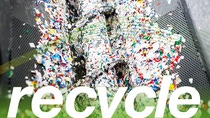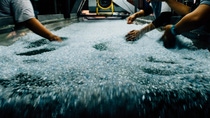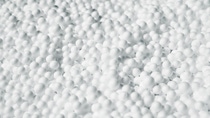Plastics & Rubber
On the way to rethink plastics
It’s easy to forget the good that plastic does for us every day. It keeps our food fresh. It keeps our homes warm. It even keeps us safer as we drive. And, as the BASF portfolio of plastics continues to evolve, we believe more than ever that plastics can continue to play a positive role in our lives by rethinking the way we MAKE, USE and RECYCLE them.
K 2025 successfully completed.
In Düsseldorf we presented solutions along #OurPlasticsJourney - MAKE, USE and RECYCLE. Now, after the trade fair, we are proud to present the progress we have made to and the potential that #OurPlasticsJourney continues to hold.
Were you unable to attend the trade fair? No problem!
Some call it a transformation, we call it #OurPlasticsJourney.
Plastics prodcution still depends on fossil ressorces, and too much plastic waste still ends up in the environment. However, working alongside our customers and partners, we are taking on the challenge and do our part in co-creating solutions that reinvent the entire lifecycle of plastics together - from how we can produce plastics more resource-efficiently, to how we can use them better, to how we can give them a new life.

The journey to net zero by 2050 is challenging. We continually seek solutions. Learn how we change the way we produce plastics more resource-efficiently.
Find out how

In the USE phase of their lifecycle, plastics play out all their strengths. We innovate with our customers to enhance the sustainability contribution of our products.
Find out how

Together with partners we work on a variety of recycling projects with different maturity levels - from mechanical recycling to complementary chemical recycling.
Find out how
Find out how our experts contribute to the #OurPlasticsJourney
Explore what we do across the different BASF divisions to move forward on #OurPlasticsJourney
We at BASF want to explore new ways to make the lifecycle of plastics more sustainable. This involves all regions, divisions, industries and products. From petrochemical raw materials, to monomers and polymers, additives and stabilizers. We want to be the preferred chemical supplier to enable our customers green transformation and create a better future with plastics.





